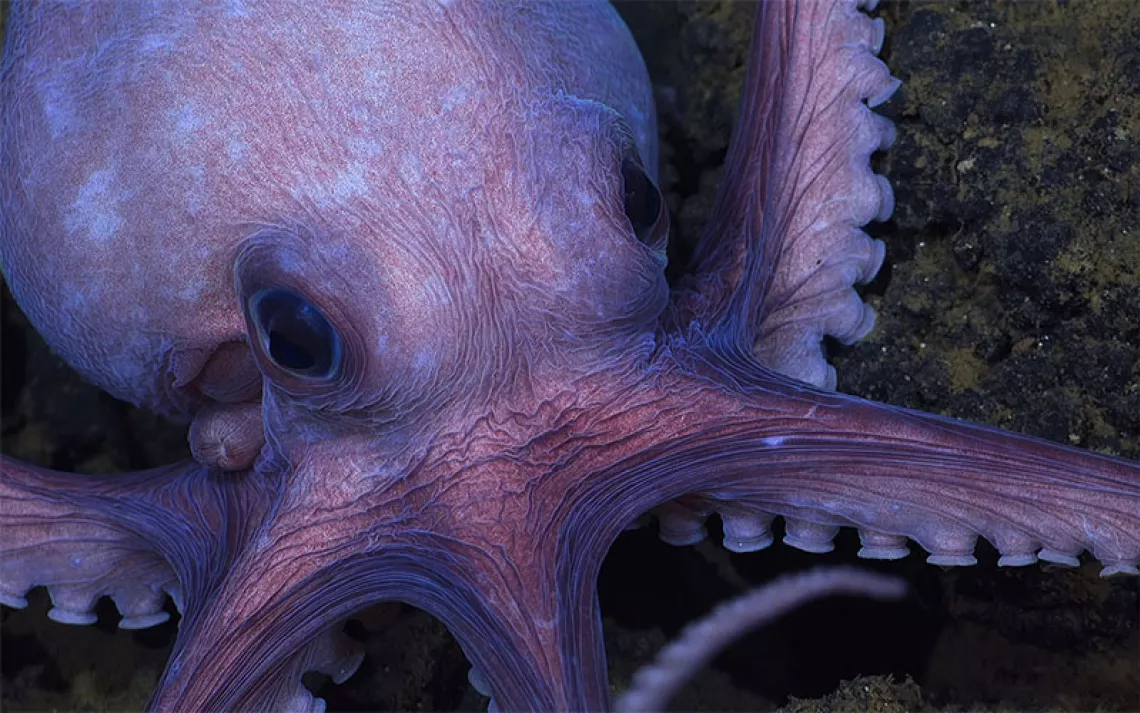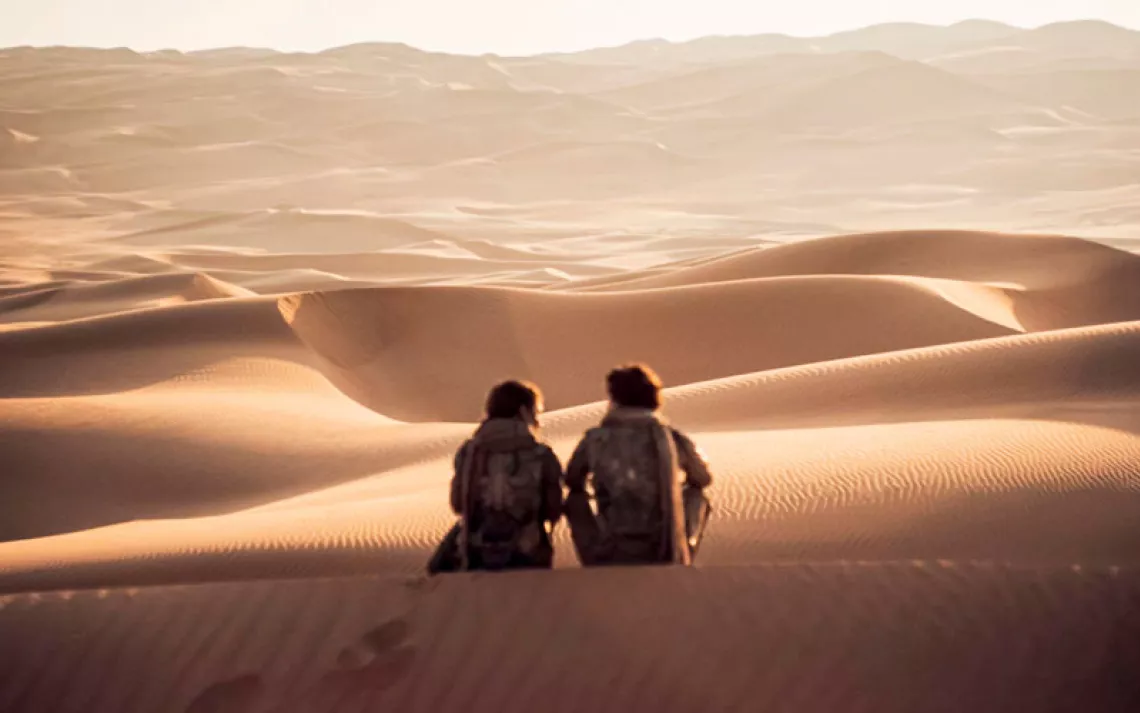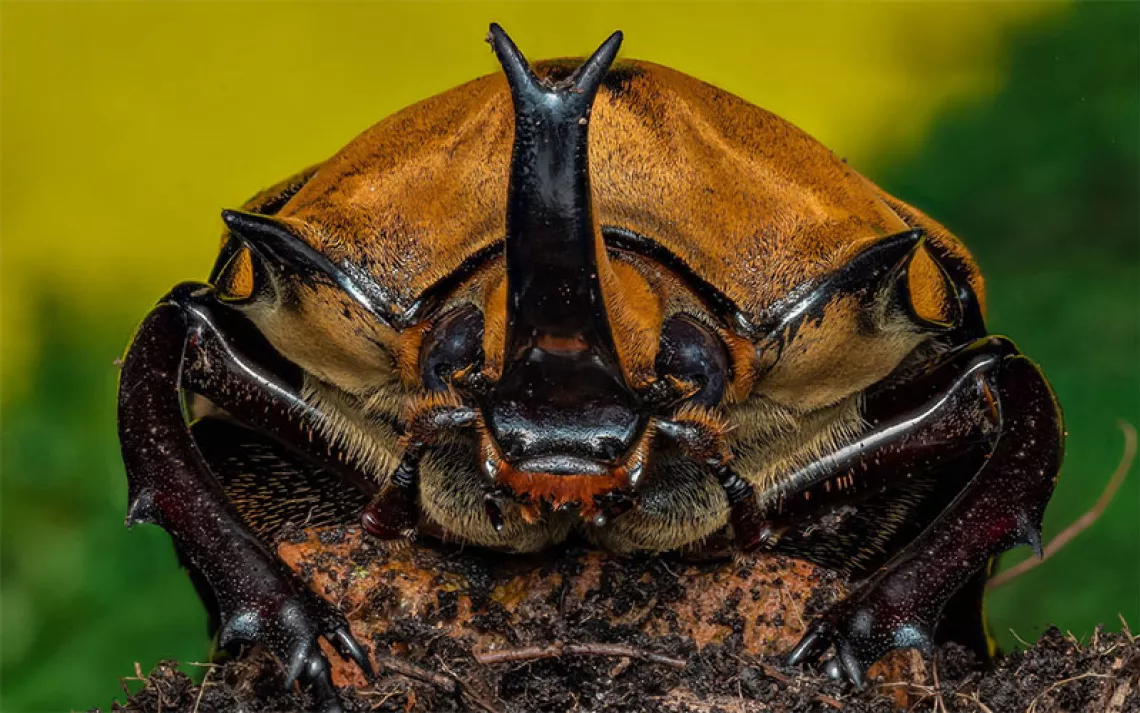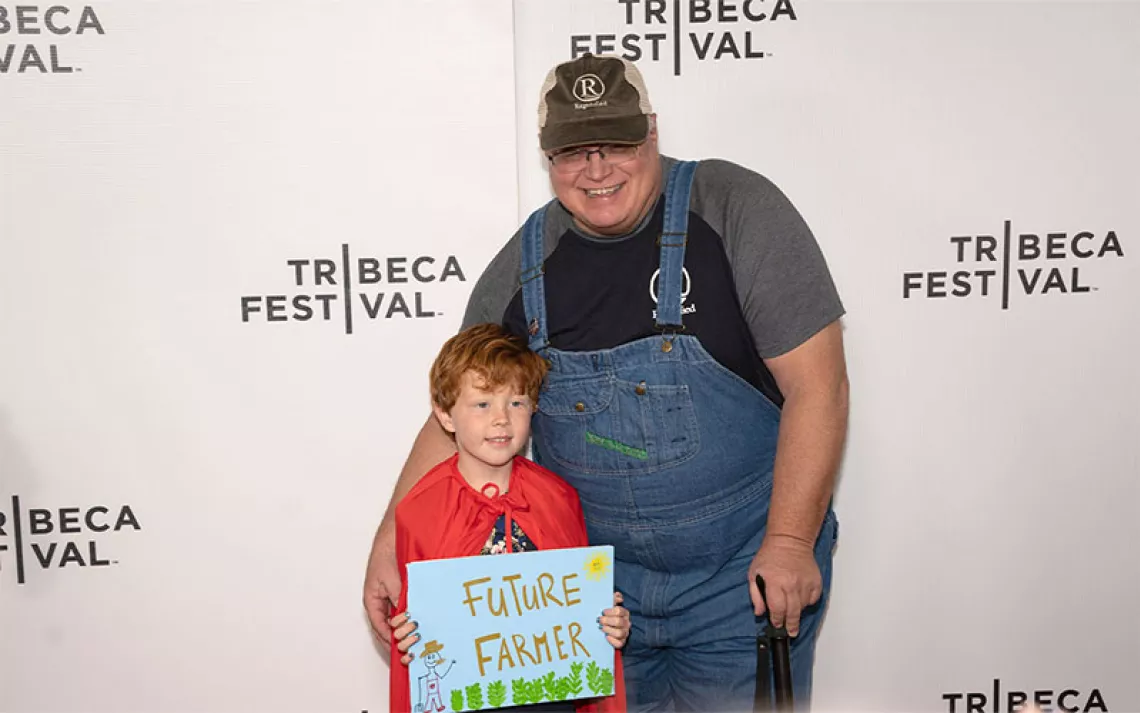"Fantastic Fungi" Makes Much Ado About Mushrooms
Trippy documentary celebrates the wonders and possibilities of the fungal kingdom
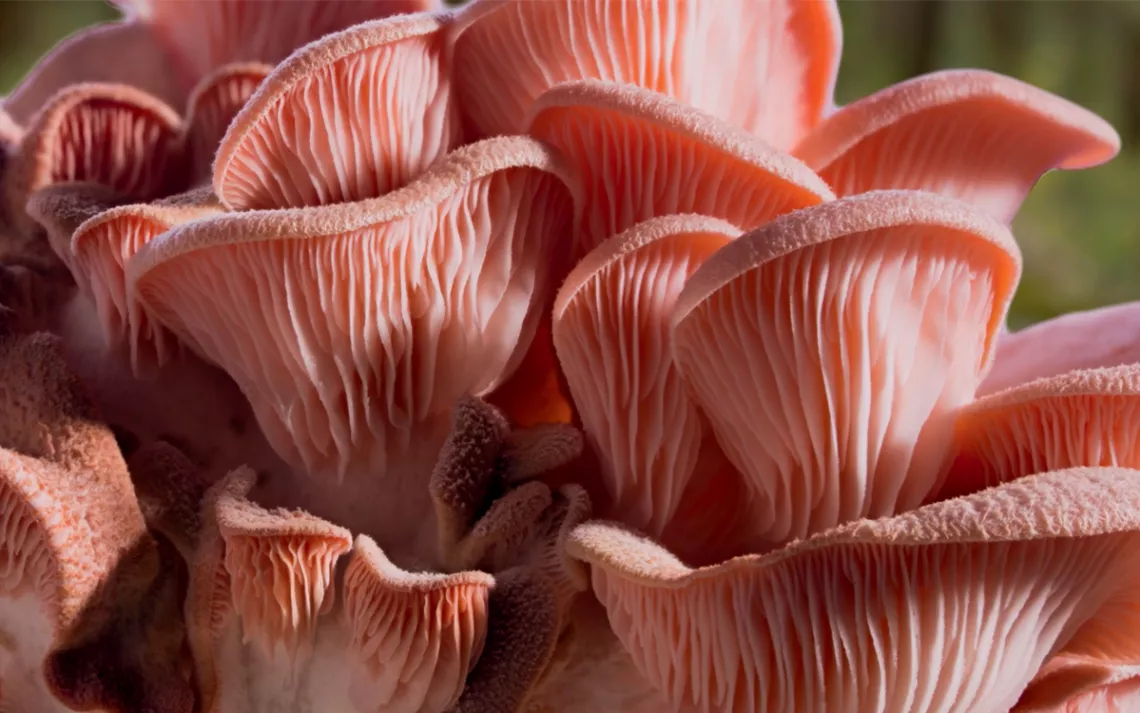
Louie Schwartzberg's trippy new documentary showcases how fungi provide numerous ecological and medicinal benefits. | Photo by Louie Schwartzberg/Fantastic Fungi Film
When he was young, Paul Stamets had a severe stutter that left him dreading social interactions. As a result, he spent a lot of time looking down at the ground. What he saw there piqued his curiosity and started him on a journey that continues to this day.
The documentary film Fantastic Fungi: The Magic Beneath Us (playing in select theaters and available to rent or buy via fantasticfungi.com) chronicles Stamets's journey and the object of his fascination: mushrooms and their fungal networks. Stamets, now a world-renowned mycologist, calls mushrooms "the grand molecular decomposers of nature," whose function is to regenerate forest and field by breaking down organic matter.
Thanks to the time-lapse, high-speed cinematography of director Louie Schwartzberg, viewers witness this process up close. Mushrooms sprout from leafy debris, rise out of fallen trees, and latch onto the body of a dead rodent, then devour it. Schwartzberg perfected his technique by leaving a camera rolling 24/7 for the past four decades in his home studio (the close-up nature scenes are actually filmed indoors).
But Fantastic Fungi is as much about what happens beneath the surface, hidden from human view. A mushroom is the fruiting body of a fungus, most of which grows underground as a mycelium, a tangled mass of threads that absorb nutrients from the environment and can stretch for hundreds of miles. Stamets believes that vast networks of mycelia form a kind of consciousness, functioning something like the brain of the planet. His mission is to discover how this system communicates with the ecosystem around it and what, exactly, it's saying.
Starting to sound a bit out-there? For sure, Stamets is an unconventional figure with some unusual ideas. He also, despite having never formally trained as a scientist, holds five patents for biopesticides, all of which make use of fungi's natural defenses to repel termites, wasps, and other pests. Turns out that fungi produce enzymes to ward off competition for food and that these can be harnessed by humans to fight not just insects but also diseases. The best example is penicillin, but the potential for future discoveries is enormous. "We have barely tapped into the fungal genome," Stamets says.
Fantastic Fungi is an ambitious film with threads that, like mycelia, stretch in many directions—science, history, medicine, spirituality, and modern-day environmentalism. According to Stamets, mushrooms are a kind of environmental cure-all that can detoxify soil and even be used to clean up oil spills.
A broad cadre of academics and other experts (including food writers Michael Pollan and Eugenia Bone) appear on-screen to extol the wonders of the fungal kingdom. We learn that fungi emerged from the ocean 4 billion years ago to generate the soil that made terrestrial life possible (a lava bed in South Africa hosts a mycelium fossil that is 2.4 billion years old—the oldest record of a multicellular organism). The film also delves into the theory that certain mushroom varieties' hallucinogenic effects may have catalyzed changes in the human brain that led to the development of language.
Fantastic Fungi examines the impact of psychedelic mushrooms in modern times too, pointing to research that suggests they have untapped potential to treat post-traumatic stress disorder, Alzheimer's disease, and alcoholism. In perhaps the most moving sequence, terminally ill patients recount how ingesting psilocybin, a chemical found in psychedelic mushrooms, in carefully supervised settings helped them find peace in the face of death.
The 1.5 million species of fungi dominate Earth in ways humans still barely understand. When we trash our forests, Stamets warns, we risk losing not just potential cures for disease but also a primal connection to something far bigger than us. Fantastic Fungi is an invitation for a shift in consciousness—one we need to undergo if we are to save ourselves from destruction. After all, fungi have survived all the great extinction events. Most likely, they'll survive the next one, even if we don't.
This article appeared in the May/June 2020 edition with the headline "Much Ado About Mushrooms."
Visit fantasticfungi.com to register for a virtual Earth Day Eve Q&A with Paul Stamets, Louis Schwartzberg, and other fungi enthusiasts on April 21.
 The Magazine of The Sierra Club
The Magazine of The Sierra Club
